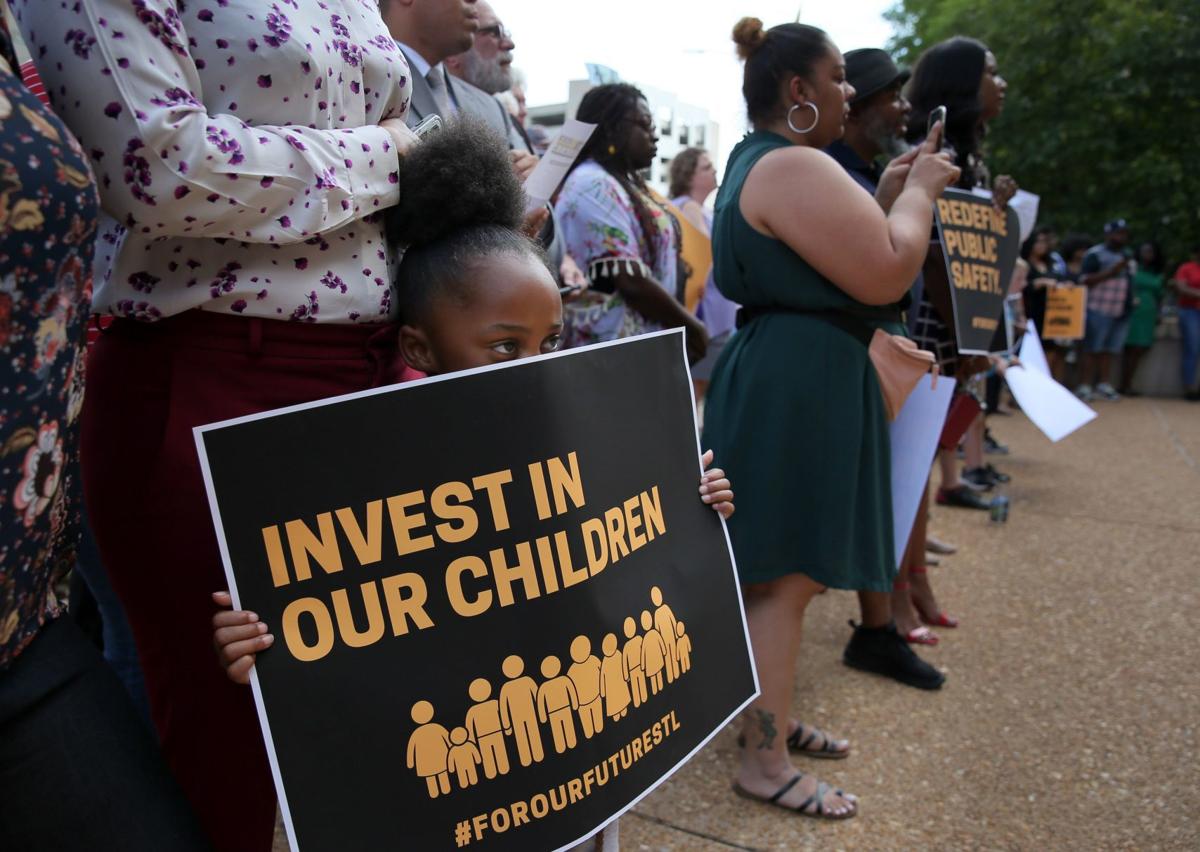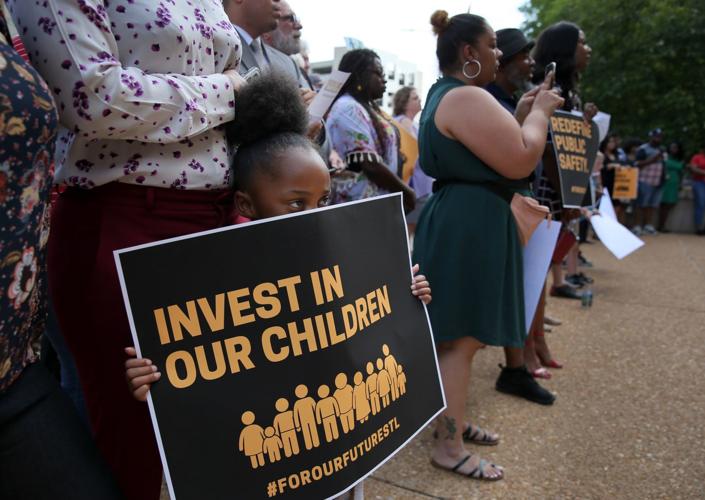The Rev. Erin Counihan offered a master class in empathy.
Counihan, pastor of in south Ëú╠Ď╩ËĂÁ, was testifying Tuesday in front of the Public Safety Committee of the Board of Aldermen. She was there with other advocates of the Close the Workhouse movement, urging support of a resolution asking city leaders to start planning for the closure of the Medium Security Institution that for decades has been criticized for its conditions.
CounihanÔÇÖs testimony came after a tense moment when the chairman of the committee, Alderman Joe Vaccaro, and another alderman, Tammika Hubbard, took issue with the descriptions of the conditions in the Workhouse offered by several Ëú╠Ď╩ËĂÁ residents who had been there, held on various petty offenses over the past few years.
Hubbard all but called the activists liars, accusing them of engaging in a campaign of ÔÇťmisinformation.ÔÇŁ Vaccaro was more circumspect: ÔÇťThe picture youÔÇÖre painting is different than the picture IÔÇÖve seen,ÔÇŁ he said, before lecturing the audience about treating aldermen with respect.
People are also reading…
Counihan, like Vaccaro, had taken a guided tour of the Workhouse, but she recognized that somebody in her position might see things differently than somebody who had been arrested, and kept in jail for months because they couldnÔÇÖt afford bail.
ÔÇťTheir experience of living there for six months, of course, is going to be different than my 20 minutes there,ÔÇŁ Counihan said.
Indeed, if the movement has accomplished anything, itÔÇÖs in getting people from different lived experiences to view the criminal justice system through a different lens.
Take Alderman Cara Spencer, one of the co-sponsors of the Close the Workhouse resolution. When she last ran for reelection, she opposed closing the Workhouse.
ÔÇťI was skeptical,ÔÇŁ she told me not long ago. ÔÇťThe sentiment I was getting from my constituents, was that they wanted more people in the Workhouse.ÔÇŁ
Then she listened to the activists driving the movement, people like Inez Bordeaux, who ended up in the Workhouse because she was accused of accepting unemployment benefits for too long.
Spencer, like all the other public officials who have endorsed closing the Workhouse ÔÇö from Treasurer Tishaura Jones, to Comptroller Darlene Green, to the head of the stateÔÇÖs public defenderÔÇÖs office, Mary Fox, to Circuit Attorney Kimberly M. Gardner, and her likely opponent in the next election, Mary Pat Carl ÔÇö did the math.
The population in the Workhouse has gotten so small that the people currently locked up there could be transferred to the cityÔÇÖs main jail, the City Justice Center, with room to spare, if only the city would stop subsidizing most or all of the 200 to 250 federal detainees a day.
The feds pay about $90 a day for those prisoners, but itÔÇÖs still a losing proposition for the city, as every detainee in its two jails costs more than $125 a day. The city estimates it will bring in $5 million a year for those federal detainees, but it spends about $16 million a year to keep the Workhouse open.
ÔÇťIt really does make sense,ÔÇŁ Spencer says, to close the Workhouse, and spend the millions of dollars the city spends to keep it open in other areas.
Indeed, said Alderman Dan Guenther, sponsor of the , the debate shouldnÔÇÖt be about the relative conditions of the Workhouse, but what the city could accomplish if it re-focused its limited resources.
ÔÇťThese are dollars we could put back in our community,ÔÇŁ Guenther told his fellow aldermen.
Counihan knows where sheÔÇÖd like to see some of that money go. Just before she testified, she was helping an acquaintance to get access to mental health care services. A social worker at the hospital told her something that sheÔÇÖs heard many times before.
For many people living in poverty, ÔÇťthe only access for help is if they end up in the criminal justice system,ÔÇŁ Counihan told the aldermen. There has to be a better, more efficient way to provide mental health services in the city, she said, than to wave our hands helplessly in the air and say: ÔÇťIf only they had been arrested.ÔÇŁ
After two hearings this week, both of which ended with less than a quorum of aldermen present, there was no vote on the Close the Workhouse resolution.

Inez Bordeaux
But that day should come, Bordeaux challenged the committee.
ÔÇťEither you are OK with the criminalization of poverty, or youÔÇÖre not,ÔÇŁ she said. ÔÇťThere are no fences out here. Choose a side.ÔÇŁ






















